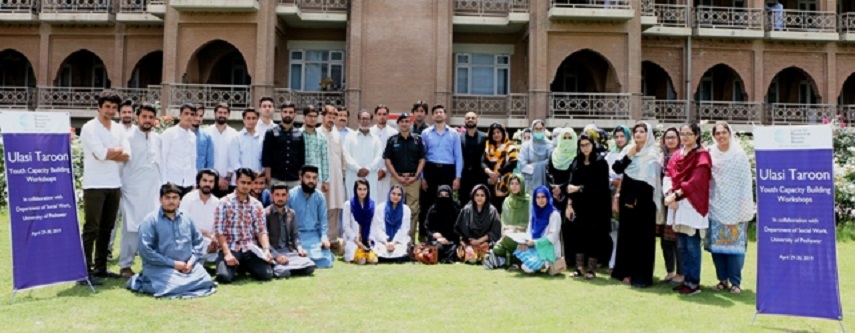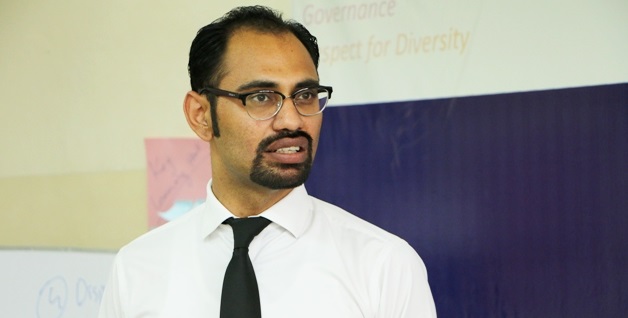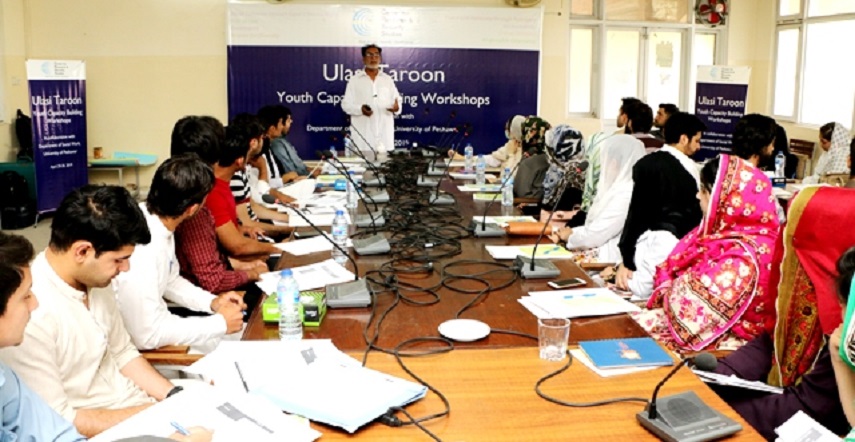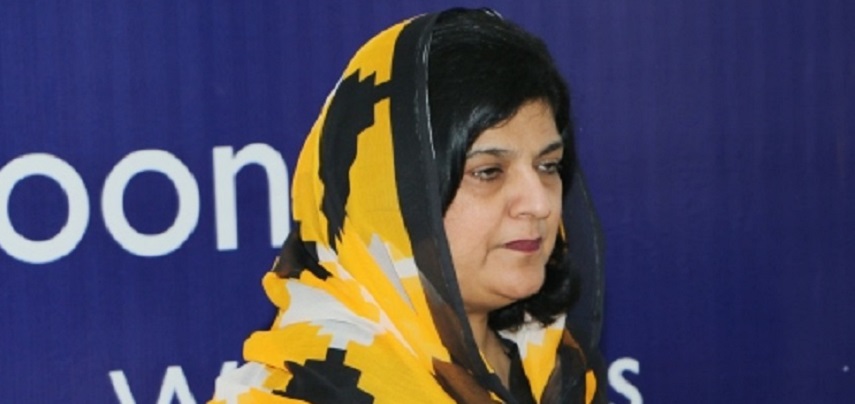Rule of Law means that everyone in the society is subject to and equal before law regardless of one’s socio-political or economic background. Adherence to law is critical to uphold rule of law.
These were the notions expressed by Mr. Wasim Riaz, Superintendent of Police, Peshawar Cantt. during the eighteenth round of Ulasi Taroon, Youth Capacity Building Workshops organized by the Center for Research and Security Studies (CRSS) at and in collaboration with the Department of Social Work, University of Peshawar.
Mr. Wasim Riaz said that across the board accountability of indiscriminate nature is key to uphold rule of law and strengthen social cohesion. The de-politicization of the accountability processes is of paramount importance for transparent democracy. The application of accountability should not only be for the violation of laws and crimes committed but also for criminal negligence committed. The selective application of law is extremely detrimental to peace and potential to disintegration. Those at helm of the implementation of laws should be extremely responsible and vigilant as the powers come with great responsibilities. There is a very critical linkage between laws and rule of law; the better the law, the stronger the rule of law. The dispute resolution mechanism – including the alternate dispute resolution systems in place – is another crucial tool to ensure accessible justice.
The coercive measures should not be the answer to ameliorate the issues facing the society. The objective evaluation of the causes of a problem – with empathetic approach at the core – is direly needed as core consideration to uphold rule of law.
Barrister Ali Gohar said that respect for fundamental human rights is directly proportional to and interconnected with social peace and cohesion. Will of the people is the key ingredient for the success of a political system. A strong political structure in the country is critical to nourish democracy. The concept of democracy calls for balance and cohesion between the democratic institutions of the country where they respect each other’s domains. For an effective democracy, all the democratic institutions should observe their constitutional limits where legislature, executive and judiciary should only commit to legislation, execution and adjudication respectively.
The worst form of democracy is still better than dictatorship as it still ensures the fundamental rights enshrined in the constitution. Accountability starts off at a very small level and should begin from self-accountability of the individual. The students in public educational institutions are accountable for the taxpayers’ money spent on their education paid by the state.
One of the most important components of democracy is freedom of expression. Democracy means inclusion of the people of all the communities of all faiths. The basic essence of the democracy is representation of people from all walks of life.
Nations cannot progress and stay cohesive without the existence and acceptance of tolerance perspectives. The fundamental prerequisite of democracy is humanity and treating each other as equal citizens. In democratic states, all the citizens are entitled to equal chance of social mobility. The peaceful coexistence of is only possible through compliance with the core constitutional values critical to social cohesion. The decisions taken in democracy cannot be taken in isolation and ought to consider the collective interest of the communities and be inclusive of the feedback of the public on the issues that concern them the most.
Dr. Rasheed Khan, Chairman, Department of Social Work, University of Peshawar, said that the workshops like Ulasi Taroon are need of the hour to cultivate youth in the ideals of social cohesion and peace, equip them with the necessary tools to counter extremism and lead peacebuilding efforts, and prepare them for the challenges of the future for cohesion and coexistence. Nurturing understanding and linkages among the people with different ethnic, cultural, traditional and religious backgrounds can strengthen cohesion and peace.
Mrs. Shagufta Khalique, educationist, underscored the importance of educating public on the rights and responsibilities anchored in their constitution as well as the international commitments like UDHR. The role of youth in promoting these ideals of equality and tolerance is direly needed. Once the diversity and differences are accepted in a society, the ultimate result is peace. Democracy is also an attitude that needs to be inculcated among youth with practical examples. We must understand that dialogue is the key to resolve the disputes and differences rather than force or coercive means.
Mr. Shams Momand, Project Manager, CRSS spoke about the role of media including broadcast, print and social media to counter radicalization and disseminate the positive messages and tolerance perspectives. It has tremendous outreach; key to cultivate the public in the cohesive values. The youth should positively use this platform to spread the messages of peace and harmony.
Mr. Malik Mustafa, Manager Programs, CRSS underscored that the key to social cohesion lies in abiding by the core constitutional values of peace, respect and coexistence enshrined in the constitution. The gratitude and optimism are the virtues that can not only nurture happiness but can also change the way the youth can pursue their visions and achieve success.
Ulasi Taroon is a counter radicalization initiative of CRSS that aims to address the radicalization challenges, extremist ideologies and foster social cohesion through a discourse anchored in the core constitutional values which are fundamentally essential prerequisites for social peace and harmony. The endeavor aims to cultivate and sensitize the youth – in the universities across KP – in the core values in the Pakistani constitution and our social contract. It’s an attempt to highlight the criticality of abiding by these ideals – such as adherence to rule of law, primacy and sanctity of constitution, equal citizenry, responsible citizenship, respect for fundamental human rights, tolerance for diversity and different opinions, inclusive democracy and good governance – as a measure of fostering social cohesion and peaceful co-existence.







